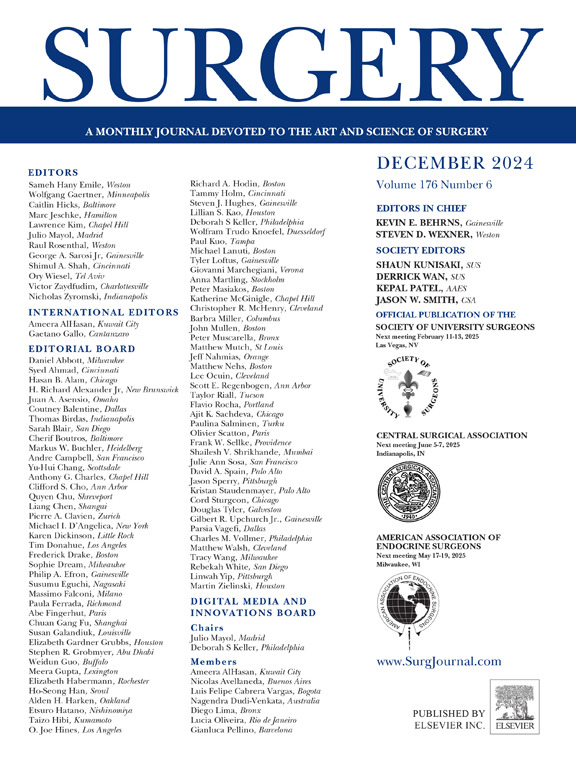Enabling future military medical education and training
IF 3.2
2区 医学
Q1 SURGERY
引用次数: 0
Abstract
Major advances in injury care have been fostered as a natural consequence of war. Likewise, the culmination of each conflict has been associated with a subsequent decrement in trauma care knowledge and experience secondary to the impact of competing health care priorities, loss of institutional knowledge, and perhaps, most importantly, a lack of lead emphasis. This lack of emphasis by senior civilian and military leaders to effectively advocate for resources has left our US military medical forces ill-prepared to respond to the next pandemic, terrorist attacks, natural disasters, or war. For us to fight and win our nation's wars, we must have immediate support to continue to evolve and improve our medical capabilities. An essential aspect of US military medicine is the partnerships with foreign nations that enable the sharing of lessons learned and technologies that enhance health care delivery during conflicts. Only through appropriate allocation of resources, continuing partnerships between the United States and our international medical partners, and the development and application of new technologies will US military medicine be able to adequately support the warfighter in future conflicts with near-peer adversaries.
使未来的军事医学教育和培训成为可能
作为战争的自然结果,受伤护理方面取得了重大进展。同样,每次冲突的高潮都与随后的创伤护理知识和经验的减少有关,其次是相互竞争的卫生保健优先事项的影响,机构知识的丧失,也许最重要的是,缺乏对领导的重视。高级文职和军事领导人缺乏对有效倡导资源的重视,这使得我们的美国军事医疗部队在应对下一次大流行、恐怖袭击、自然灾害或战争方面准备不足。为了打赢我们国家的战争,我们必须立即得到支持,继续发展和提高我们的医疗能力。美国军事医学的一个重要方面是与外国的伙伴关系,这使得能够分享经验教训和技术,从而加强冲突期间的医疗服务。只有通过适当的资源分配,美国和国际医疗伙伴之间的持续伙伴关系,以及新技术的开发和应用,美国军事医学才能在未来与势均势敌的冲突中充分支持作战人员。
本文章由计算机程序翻译,如有差异,请以英文原文为准。
求助全文
约1分钟内获得全文
求助全文
来源期刊

Surgery
医学-外科
CiteScore
5.40
自引率
5.30%
发文量
687
审稿时长
64 days
期刊介绍:
For 66 years, Surgery has published practical, authoritative information about procedures, clinical advances, and major trends shaping general surgery. Each issue features original scientific contributions and clinical reports. Peer-reviewed articles cover topics in oncology, trauma, gastrointestinal, vascular, and transplantation surgery. The journal also publishes papers from the meetings of its sponsoring societies, the Society of University Surgeons, the Central Surgical Association, and the American Association of Endocrine Surgeons.
 求助内容:
求助内容: 应助结果提醒方式:
应助结果提醒方式:


